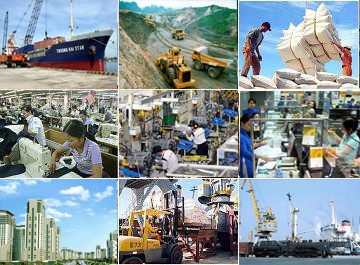
 |
| Illustration photo |
The subjects will enjoy advantages in corporate income tax exemption and reduction, tax preferences (including exemption of import duties applicable to equipment, materials, transport means and land use privilege); exemption and reduction of land tax, land rentals; period of land use.
These five subjects include investment projects in priority sectors and areas, investment projects with capital scale of at least of VND6,000 billion, investment projects in rural areas hiring more than 500 workers and high technology businesses and science and technology enterprises and organizations.
The Law on Investment encourages investments in high tech, industrial products supporting high-tech, research and development; production of new materials, new energy, clean energy, renewable energy, products with value-added more than 30% and energy -saving products.
Other sectors such as the manufacturing of electronic products, key mechanical products, agricultural machines, automobiles, automobile spare parts; shipbuilding, industrial production support for the textile industry, leather shoes; production of information technology, software, digital content are also given incentives .
Regarding the agricultural sector, investment incentives are applied to agricultural-forestry-aquatic production and processing; forest planting and protection, salt making, fishing and fishing logistics services, plant seeds and animal breeds and biotechnology products.
In the social, education and infrastructure sector, investment incentives are offered to the fields of collecting, processing, recycling or reuse of waste; development investment and operation, management of infrastructure projects, development of public transport in urban areas; pre-school education, general education and vocational education.
In the healthcare sector, the incentives are given to medical examination and treatment, drug production, drug materials, essential drugs, social diseases prevention, vaccines, health products, herbal medicines, scientific research on pharmacy and biotechnology to produce new drugs, geriatric and mental health centers, treatment of patients with Agent Orange; nursing homes for elderly people, people with disabilities and orphans as well as investment in sports centers for the disabled or professional competitors and cultural heritage preservation.
(Source:VGP)





